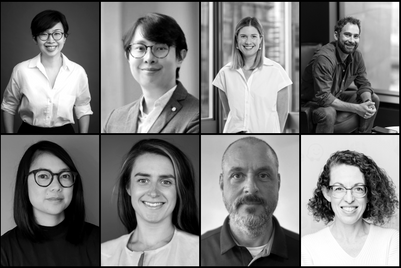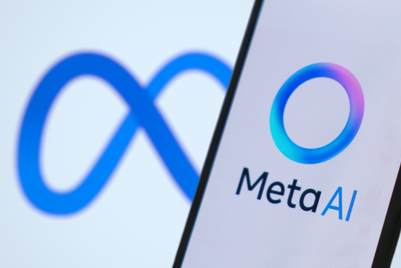
Let’s face it, this landscape is changing faster than we can say the word ‘programmatic’. Artificial intelligence (AI) has sunk its roots into this industry, just as marketers and advertisers in Asia are coming to grips with how online advertising has changed.
The past year has been rife with transparency concerns, with marketers realising the need to fully grasp the ins and outs of programmatic advertising. To that end, tech vendors, industry bodies and governmental institutions have developed training or placement programs to upskill current professionals and prepare the next generation of marketers.
At the same time, we’re beginning to see the rise of private marketplace deals, providing even more transparency into the programmatic chain and transaction.
Like it or not, we’re well into the next evolution of marketing and advertising—this time with the rise of machine learning. Although a subset of AI, machine learning covers most of today’s use cases and is already powering the majority of marketing automation platforms, DSPs and SSPs.
With natural language processing and computer vision increasingly coming into play, the hype surrounding AI in this industry is warranted, and will be the next step to drive truly personalised marketing and advertising.
Connected everything for personalisation
One of my predictions last year was the rise of a ‘connected everything’ environment—focusing on the Internet of Things (IoT). This was somewhat true, as voice assistants took to the market and some have touted the rise of voice search and advertising.
What I’ll focus on this time around is less about IoT but having ‘connectedness’ across siloed enterprise applications.
Now let’s take a look at ‘connectedness’ from a personalisation viewpoint.
In 2017, we saw a rise in demand for dynamic creative optimisation in Asia, with marketers armed with the ability to serve individually customized creatives based on a user’s behaviour. However, personalised advertising today is largely based on a targeting-first environment.
Now, throw AI into the mix—allowing for engines including learning, context recognition, personalised recommendations and even social intelligence to be the connecting power behind business applications - driving the next stage of personalised marketing.
Take travel for example, where advertising can be personalised in real-time potentially to the level of email engagement, social media comments and posts, employee data or real-time plane fill rates—allowing for an even deeper layer of user engagement.
With the EU’s GDPR looming, data owned by organisations (even in Asia) will become an even more valuable commodity—there might even be data privacy laws specific to Asia that are updated or developed.
Bringing storytelling to life
What this means for marketers and advertisers is the ability to tell a very unique story to an individual.
We are already seeing marketing-automation tools sending messages based on pre-determined triggers. The obvious next stage will be to build differentiated storylines that evolve organically, and merge ad and mar tech—for example, lining up influencer marketing and social advertising, chat bot engagement, followed by a personalised ad based on that user’s engagement of the previously mentioned activities.
Fundamentally, it is the ability to understand a consumer’s behaviour and habits, and engage with them, that makes us marketers, and storytelling is a big part of this.
With customer’s reception of advertising in general being clearly displayed through ad blocker adoption, it is time that the industry steps up and fights back with more engaging brand storylines.
Although we haven’t reached that point, AI development will reach a stage where it is able to drive more sophisticated and detailed conversations with our customers.
The evolved role of marketing
This brings me to my next point—what will happen to the role of a marketer in the future.
Right now, there is no ultimate AI solution that can direct, manage and execute every aspect of marketing and advertising, but rather, there exists today point-based solutions to further drive customer engagement.
What this means is that AI will cause a shift in the skillset of a marketer to one that is comfortable with handling data.
Understanding the parameters for your AI solution to work within, having the ability to holistically analyse marketing spend and being able to attribute marketing activities to business results will be crucial skills for the marketer of the future, apart from the foundation that we’ve built up so far. The execution of various marketing and advertising activities will only get faster and more precise.
At the same time, AI will enable marketers and businesses to achieve efficient business discovery—providing marketers with greater ease in discovering niche customer segments, process redundancies, and even unlock new ways of engaging likely prospects. Essentially finding and acting on areas that were not readily apparent previously.
2018
Now let’s take a step back into reality and 2018.
In the year ahead, there will be even more consolidation within this space—and it would be interesting to see if there are any acquisitions purely for a company’s data.
Similarly, influencer marketing will find its way around bot fraud, video advertising will continue its growth, ads.txt will be a requirement in Asia, and an even greater focus on localisation of marketing.
Ultimately though, the advent of artificial intelligence into every aspect of marketing is not a question of how but a question of when. It is important that marketers are prepared for this future, and the endless engagement possibilities and opportunities that will come with it.
Kosuke Sogo is CEO and co-founder of AdAsia Holdings.


.jpg&h=334&w=500&q=100&v=20250320&c=1)


.jpg&h=334&w=500&q=100&v=20250320&c=1)
.jpg&h=334&w=500&q=100&v=20250320&c=1)


.png&h=334&w=500&q=100&v=20250320&c=1)





.jpg&h=268&w=401&q=100&v=20250320&c=1)
.png&h=268&w=401&q=100&v=20250320&c=1)


